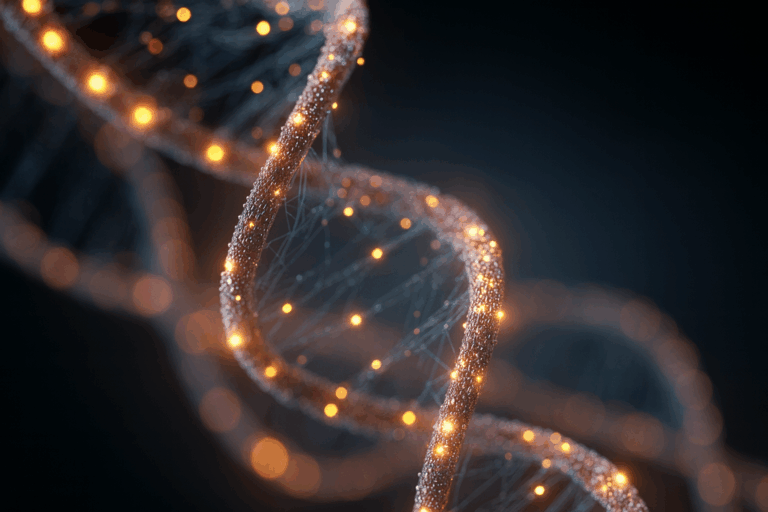What does it mean to live a long, healthy life – not just in years, but in depth, vitality, and purpose?
This question has been on the minds of researchers, physicians, and spiritual seekers for centuries. In recent years, a surprising candidate has emerged to help support healthy aging: psychedelics. While once confined to counterculture, substances like psilocybin are now at the forefront of scientific inquiry into psychological health and biological markers of aging.
At Beckley Retreats, we don’t treat psychedelics as a cure-all. However, we do believe – as emerging science affirms – that in safe, intentional settings, they may help support the conditions for long-term wellbeing and vitality.
In this article, we will explore how psilocybin may contribute to functional health and longevity, claims that are grounded in credible data and a holistic understanding of human flourishing.
What Is Functional Health?
Functional health refers to your ability to live fully and independently – physically, mentally, and socially. It’s not about the absence of disease; it’s about how you feel, how you move, and how you relate to others.
Core pillars of functional health include:
- Psychological resilience
- Emotional regulation
- Cardiovascular and cognitive health
- Social connection and sense of purpose
These domains are also deeply intertwined: to feel psychologically resilient in difficult situations requires a certain level of emotional regulation, which in turn depends on one’s cognitive health. A healthy brain supports emotional regulation. In addition, our sense of connectedness and meaning in life often acts as an anchor that supports us when going through periods of difficulty – in other words, it enhances our emotional regulation and resilience., Increasingly, several studies have shown that psychedelics can support several of these pillars of functional health at once. In this way, they may act as a novel method for improving overall health, rather than just one aspect of health, such as the psychological aspect.
Stress, Inflammation, and Aging: The Silent Saboteurs
One of the biggest threats to healthy aging is chronic stress. Prolonged stress activates the body’s sympathetic nervous system, flooding it with cortisol. Over time, this response leads to inflammation, immune dysfunction, and cellular aging, including the shortening of telomeres (the protective caps at the ends of DNA strands).
A 2015 study published in Nature Communications found that individuals under high levels of chronic stress exhibited significantly shorter telomere lengths, a biomarker of accelerated biological aging (Epel et al., 2015).
Here’s where psychedelics come in: multiple studies suggest that substances like psilocybin may help reduce stress and increase emotional resilience. If a compound like psilocybin can tackle chronic stress, it’s possible it could, in turn, protect oneself against issues like inflammation, immune system disruption, and cellular aging.
At the same time, we do want to caution against relying on psilocybin as the sole means for dealing with stress. Typically, chronic stress is related to factors like work and lifestyle. Nonetheless, many Beckley retreat participants find that their psilocybin experiences give them the insight to realise the deeper causes of their stress, motivating them to make the necessary changes to fix them. This is a distinct way in which a retreat experience can address the harmful effects of chronic stress.
Psychedelics and Psychological Flexibility
Psychological flexibility – the ability to adapt your thinking and behavior in response to life’s challenges – is a core predictor of long-term wellbeing.
In a randomized controlled trial conducted by Yale University, researchers found that a single dose of psilocybin increased participants’ psychological flexibility scores by an average of 31%, sustained over a four-week follow-up period (Yale Psychedelic Science Group, 2021).
This matters because inflexibility – in thought, emotion, or behavior – is strongly correlated with depression, anxiety, and premature cognitive decline. These conditions could be characterized as being ‘stuck in a rut’: they involve getting trapped in repetitive, negative ways of thinking, feeling, and acting. However, this rut isn’t a life sentence; it is possible to go from a state of inflexibility to flexibility.At Beckley Retreats, participants often describe a post-retreat ability to “respond rather than react” – they feel they have time to choose how best to respond, rather than react in a knee-jerk way that causes them distress. This enhanced flexibility is a quality that supports both day-to-day wellbeing and long-term health.
Connection and Purpose: Longevity’s Secret Ingredients
The longest-lived communities in the world – from Okinawa, Japan to Nicoya, Costa Rica – share a few traits in common. Among the most consistent are strong social bonds and a deep sense of purpose.
In a landmark 2010 meta-analysis published in PLOS Medicine, researchers found that people with robust social connections had a 50% increased likelihood of survival over time compared to those with weaker ties – a statistic that rivals quitting smoking or exercising regularly (Holt-Lunstad et al., 2010).
Psychedelics may support this domain in profound ways. A 2022 study out of Johns Hopkins found that 65% of participants reported lasting increases in compassion, empathy, and social connectedness following psilocybin-assisted sessions (Griffiths et al., 2022).
Participants at Beckley often echo these findings:
“I left with a renewed sense of my place in the world, and a deeper commitment to the people around me. It changed not just how I feel, but how I relate.”
Connection and meaning aren’t soft metrics, they’re vital signs of a functionally healthy life.
Neuroplasticity and Cognitive Health
One of the most exciting frontiers in longevity research is neuroplasticity – the brain’s ability to form and reorganize neural connections based on learning or experience.Animal models have shown that psilocybin and other psychedelics can increase the density of dendritic spines (tiny protrusions that facilitate communication between neurons) by up to 10% within 24 hours (Ly et al., 2018). While human studies are still emerging, this suggests a potential for supporting cognitive flexibility and learning throughout one’s life.
Cardiovascular and Metabolic Factors
Though research here is still nascent, some evidence suggests that the mood-enhancing and anti-inflammatory effects of psychedelics may have downstream impacts on cardiovascular and metabolic health.For example, a 2020 population study published in Scientific Reports analyzed data from over 130,000 adults. Those who had used psychedelics at least once had lower rates of hypertension, obesity, and Type 2 diabetes than matched controls, though more research is needed to confirm causality (Simonsson et al., 2020). If future research can establish a causal link between psychedelics and these health markers, then they may be able to play a role in protecting heart health and maintaining a healthy weight.
The Role of Psychedelic Integration in Functional Health and Longevity
At Beckley, we emphasize that the psilocybin experience is only the beginning. What truly supports long-term wellbeing is what happens after the retreat – how you integrate psychedelic insights into how you eat, sleep, move, and relate.
For example:
- A retreat may inspire someone to reduce their alcohol consumption or start a daily meditation practice.
- It may create the clarity needed to leave a toxic environment or deepen a relationship.
- It may spark a renewed commitment to purpose, the desire to lead a meaningful life, such as one based on service to others, the community, or the environment.
Integration turns insight into lifestyle change, or ‘turning altered states into altered traits’. And through these altered traits and behaviors, longevity is born.
The Future of Psychedelics, Aging, and Quality of Life
Clinical research into psychedelics and aging is just beginning. Ongoing trials at UCSF, NYU Langone, and other institutions are exploring how psilocybin might support aging populations in navigating grief, identity transitions, and existential distress at the end of life.
As this field matures, we may see protocols designed specifically for middle-aged and older adults, not to treat disease, but to optimize quality of life.
Beckley Retreats will continue to follow this science closely, always with humility and care.
Final Reflections
Psychedelics are not anti-aging drugs. But they may help us remember what it means to live fully – and in doing so, they can shift the trajectory of our lives.
In the words of Dr. Gabor Maté:
“The question is not how do we live longer, but how do we live now?”
At Beckley, we believe that a healthier, more enriching life is possible in each moment. Sometimes, we just need the right catalyst to adapt our minds to that way of being.
Sources:
- Epel, E. S., et al. (2015). Accelerated telomere shortening in response to life stress. Nature Communications.
- Ly, C., et al. (2018). Psychedelics promote structural and functional neural plasticity. Cell Reports.
- Griffiths, R. R., et al. (2022). Long-term effects of psilocybin on prosocial behavior. Journal of Psychopharmacology.
- Holt-Lunstad, J., et al. (2010). Social relationships and mortality risk: A meta-analytic review. PLOS Medicine.
- Simonsson, O., et al. (2020). Psychedelic use and physical health outcomes. Scientific Reports.
- Yale Psychedelic Science Group. (2021). Psilocybin enhances brain connectivity.

Admin
-2-1.png)
